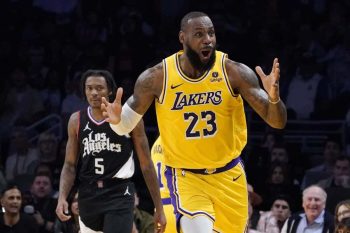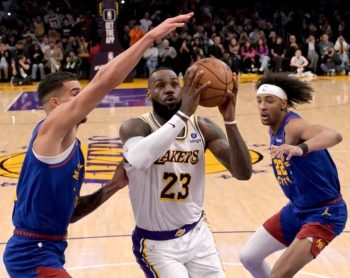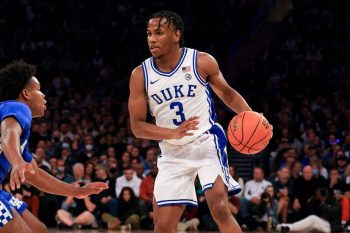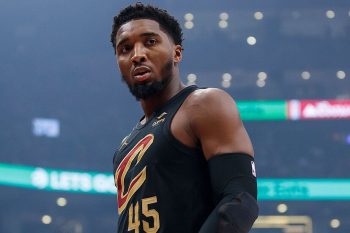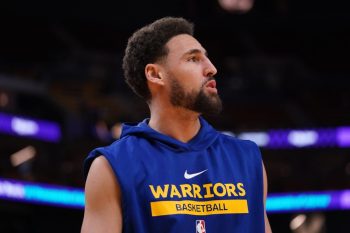NBA
NBA Sunday: Lockout Now More Likely

December 15, 2016.
Between now and then, a lot will transpire in the NBA, but that’s the next date that should be circled on your calendar. By rule, that is the date before which the NBA and the NBA Player’s Union have to notify one another whether they wish to opt out of the 2011 collective bargaining agreement.
And at this point, it’s inevitable.
* * * * * *
Since Danny Ainge acquired Ray Allen and Kevin Garnett back in 2008, there have been a whirlwind of trades and moves that occurred as a result. Since then, it has taken at least three to tango.
Over the years, we saw Shaquille O’Neal and Shawn Marion traded. We saw Jason Kidd force his way out of New Jersey. We saw former All-Star caliber performers take cents on the dollar to join elite teams and, most importantly, we saw LeBron James and Dwyane Wade join forces after each was defeated by Ainge’s Celtics team.
We saw Dwight Howard, Chris Paul and Carmelo Anthony each change addresses, and now, Kevin Durant has decided to call the Bay Area home.
What do you think Russell Westbrook is going to do when it’s his time?
What about DeMarcus Cousins? How about Anthony Davis?
Back in 2010, LeBron raised the stakes when he took his talents to Miami. This led to the NBA’s modern talent arms race. Since then, we have seen the era of the “Super Team,” and it has resulted in a wide gulf between contenders and pretenders at the NBA level.
History has proven that ratings are better when there is a super team—the public is quite interested in seeing if they can actually win. But for fan bases and the league’s owners, the gross majority are left looking and feeling like a dog chasing its own tail. The proverbial road to nowhere; who thinks that the Memphis Grizzlies have a shot at the title this season?
* * * * * *
Most players wants to get paid, true, but for the top class of players, money isn’t usually a major issue.
A player the caliber of Kevin Durant (and almost any other perennial All-Star) will command similar money from any team in the league, so for that type of player, the question as to where to relocate boils down to two things.
The first is what type of appetite for risk the player has. Durant, for example, seems to have recovered well enough from the Jones fracture that caused him to miss all but 27 games of the 2014-15 season. Many players in Durant’s situation would have thought it wise to take the most guaranteed money and years he could get, considering one never knows when the wheels are going to fall off completely. Instead, though, Durant opted to sign a two-year deal with the Golden State Warriors, and will likely exercise his option to opt out of the second year of his contract, much in the same way LeBron James has done with the Cleveland Cavaliers.
After the financial landscape has been surveyed and the player determines what his appetite for risk is, the next question they ask themselves is what situation promises them the most rewarding experience. And the question as to what is “most” rewarding is quite subjective. To some players, endorsements, flashing lights and big markets are just as important as winning. In the NBA, there are a great number of superstars that would rather toil on a mediocre team in Los Angeles, New York or Chicago than to compete for championships in Charlotte, Salt Lake City or Sacramento.
But for those who want to win, they will look at the competition around the league, determine who the real contenders are and then imagine whether or not they can help shift the balance of power by joining a team that still happens to be one or two pieces away.
With Durant’s decision to join the Warriors, the league now finds itself in a situation that’s marked by dynamic reciprocity. With teams like the Warriors and Cavaliers seemingly stocked with talent, many in the 2017 free agent class—Chris Paul, Russell Westbrook, Derrick Rose, C.J. McCollum, Paul Millsap, Blake Griffin, Pau Gasol, Serge Ibaka and Steven Adams among them—are likely to have less of an appetite for joining rebuilding teams. The majority of these players will look at the Warriors and the Cavaliers and realize that their only chance is to win big is to join another team that already has foundational stars.
How great could the San Antonio Spurs be if Westbrook decided to join Kawhi Leonard, LaMarcus Aldridge and Gregg Popovich there?
Why wouldn’t Rudy Gay (who will also be a free agent in 2017) not try to find his way to the Los Angeles Clippers? As a talented player who has never won big in this league, he would look at their roster and imagine himself fitting in quite nicely, I’d imagine.
And therein lies the problem. Star players are forming super teams because they want to win, and they will feel as though their ONLY chance to win—when they look at the success James had with the HEAT and now sees Durant in Oakland—is to do exactly that.
This thought process flies in the face of competitive balance and it also shows the league that its most recent mechanisms built into the 2011 collective bargaining agreement isn’t effective for preventing this type of thing.
Nothing is fool proof, of course. But best believe, after Durant’s decision to join the Warriors, the league is going to look at this issue anew. And that’s scary.
* * * * * *
For the past several months, representatives from the league office—including Commissioner Adam Silver—have been having conversations with and making site visits to the NBA Player’s Union about the 2017 collective bargaining agreement that is to come. After using revenue shortfalls and financial plight as their primary motivator, the $24 billion television deal that the league recently inked has changed the league’s economic landscape. Things need to be discussed, on both sides.
The union, from what I was told, will make a strong push to either eliminate the individual maximum player salary or raise it quite dramatically. I am also told that the union would like to redistribute their share of Basketball Related Income.
In the aftermath of the Durant decision, I am told that the league is going to make a strong push for a more extreme mechanism for restricting player movement. Some sort of “franchise” tag is in the cards, as well as a more restrictive cap system.
At the end of the day, there is no way to “fool proof” the system, as the league can’t eliminate free agency and has no control as to whether or not a player decides to take less than their market value to join a team they deem to be a contender.
But heading into the fall, as we embark upon the 2016-17 NBA season, the game has truly been changed.
And after being optimistic that a work stoppage would be avoided after the current CBA is terminated, there is reason for concern.
Kevin Durant, wielding the mighty leverage that comes with being a generational talent took his talents to Oakland. He left a stunned franchise and fan base in Oklahoma City, as well as a league that again finds itself asking tough questions.
Indeed, for the entire league, Durant’s move to the Warriors is seismic. It will have widespread repercussions.
For better or for worse, they will be felt both on the basketball court and around the collective bargaining table.

